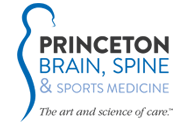Degenerative Disc Disease
Cervical & Lumbar Disc Degeneration
Symptoms, Treatment & Recovery
Intervertebral discs are cushions acting as shock absorbers for the spine. Over time, age and normal wear-and-tear causes these discs to degenerate as they dry out and lose resiliency. Everyone’s discs show wear as they age, but not everyone develops degenerative disc disease. Discs lose height during DDD, causing narrowing of the nerve pathways that leads to impingement, inflammation and pain. And, since discs do not have a blood supply like most of the body, they cannot repair themselves after injury. In severe cases of DDD, an individual may experience constant neurogenic pain. DDD may also cause mechanical pain as discs continue to break down and spinal vertebrae rub together.
Surgical Treatment of Degenerative Disc Disease
Cervical DDD
If cervical DDD symptoms persist after non-operative treatment, further diagnostic tests may be needed. If your neurosurgeon determines that one or more vertebral discs have herniated, surgery may be necessary. Your spine surgeon will educate you about various surgical options, including anterior cervical discectomy & fusion (ACDF). This procedure involves an anterior (front of the body) approach, removal of the offending disc and fusion of the adjacent vertebrae using instrumentation.
Lumbar DDD
If the surgeon discovers that one or more vertebral discs are damaged and are causing pain or other symptoms like muscle weakness, surgery may be necessary. The surgical procedure is likely to include a discectomy (removal of the degenerated disc) and interbody fusion (fusion of the vertebrae above and below the removed disc. For this type of surgery, PBSSM neurosurgeons often use the latest minimally invasive surgical techniques [LINK TO: Minimally Invasive], which result in rapid recovery.
Contact Princeton Brain, Spine & Sports Medicine
While degenerative disc disease can be a natural part of aging, it does not mean you have to live with neck pain. The surgeons at Princeton Brain, Spine & Sports Medicine can help you return to an active, vibrant life—and most of the time, this can be accomplished with non-surgical conservative treatments. Even if surgery is needed, rest assured that we will fully educate you about the procedure and provide you with best-outcome recommendations and best-possible care.
The professionals at Princeton Brain, Spine & Sports Medicine are deeply committed to patient education. By helping men and women understand the root cause of their conditions, we can help them eliminate risk factors and build healthy spine habits into their daily lives. Request information on spine pain prevention online or call a PBSSM representative to schedule an appointment: 609.921.9001 (NJ) or 215.741.3141 (PA).
Request an Appointment
Submit an appointment request on our patient portal or contact our New Jersey and Pennsylvania campuses to speak with a patient advocate.
